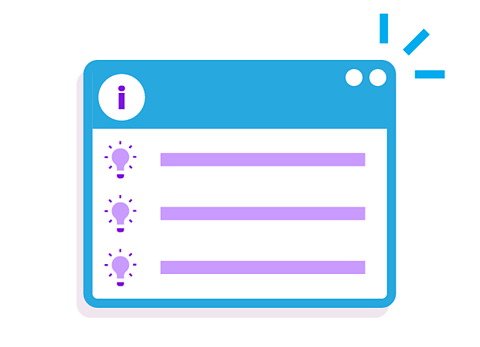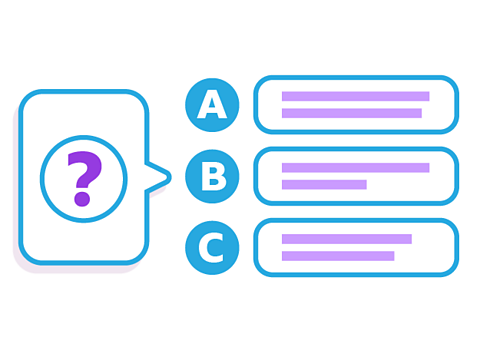Key points about the simple future in French

All French verbs can be conjugated verbA verb that has changed from the infinitive to show which person or people are doing the action or the tense the verb is in. to form the simple future tense.
The simple future tense in French is used to express тI will + verbт in English.
Most verbs are (regular) verbA regular verb follows a set pattern. in the future tense but there are some very commonly used (irregular) verbAn irregular verb does not follow a set pattern. ones, such as УЊГйАљБ№ (to be), avoir (to have), aller (to go) and faire (to do/make).
Forming the simple future of regular '-er' verbs
The simple future describes what will happen for predictions and future plans.
To form the simple future of regular -er verbs, take the infinitive and add the following endings:
| Subject pronoun | Future ending | Example -er verbs | English |
|---|---|---|---|
| je | -ai | Sorry, something went wrongCheck your connection, refresh the page and try again. | I will eat |
| tu | -as | Sorry, something went wrongCheck your connection, refresh the page and try again. | you (informal singular) will look |
| il | -a | Sorry, something went wrongCheck your connection, refresh the page and try again. | he will play |
| elle | -a | Sorry, something went wrongCheck your connection, refresh the page and try again. | she will speak |
| on | -a | Sorry, something went wrongCheck your connection, refresh the page and try again. | one will/we will arrive |
| nous | -ons | Sorry, something went wrongCheck your connection, refresh the page and try again. | we will win |
| vous | -ez | Sorry, something went wrongCheck your connection, refresh the page and try again. | you (formal singular or plural) will ask |
| ils | -ont | Sorry, something went wrongCheck your connection, refresh the page and try again. | they (masculine or mixed) will sing |
| elles | -ont | Sorry, something went wrongCheck your connection, refresh the page and try again. | they (feminine) will forget |
For example:
Nous mangerons au restaurant si tu veux. т We will eat in the restaurant if you want.
Elle jouera au foot le week-end prochain si elle va mieux. т She will play football next weekend if she is feeling better.
Forming the simple future tense - Mini quiz

Apporter means тto bringт. What is the French translation of the following phrase?
I will bring
ДГтaБшБшДЧАљГйБ№АљВЙОБ
ДЁБшБшАљУЉГІОББ№Аљ means тto appreciateт. Which verb form completes the following sentence correctly?
Rachid _________ le cadeau. (Rachid will appreciate the present.)
Rachid apprУЉciera le cadeau.
The simple future of irregular verbs
Some very common verbs are irregular in the simple future. This means that they are not formed using the infinitive, but the endings added are the same as for regular verbs.
The simple future of 'УЊГйАљБ№'
The simple future endings for УЊГйАљБ№ (to be) are added to ser-.
| Subject pronouns | Verb form | English |
|---|---|---|
| je | Sorry, something went wrongCheck your connection, refresh the page and try again. | I will be |
| tu | Sorry, something went wrongCheck your connection, refresh the page and try again. | you will be |
| il | Sorry, something went wrongCheck your connection, refresh the page and try again. | he will be |
| elle | Sorry, something went wrongCheck your connection, refresh the page and try again. | she will be |
| on | Sorry, something went wrongCheck your connection, refresh the page and try again. | one/we will be |
For example:
Je serai cУЉlУЈbre. т I will be famous.
Le magasin sera fermУЉ. т The shop will be closed.
The simple future of 'avoir'
The simple future endings for avoir (to have) are added to aur-.
| Subject pronouns | Verb form | English |
|---|---|---|
| j' | Sorry, something went wrongCheck your connection, refresh the page and try again. | I will have |
| tu | Sorry, something went wrongCheck your connection, refresh the page and try again. | you will have |
| il | Sorry, something went wrongCheck your connection, refresh the page and try again. | he will have |
| elle | Sorry, something went wrongCheck your connection, refresh the page and try again. | she will have |
| on | Sorry, something went wrongCheck your connection, refresh the page and try again. | one/we will have |
The simple future forms of avoir can be used in the same way as тwill haveт in English. They are also used when the verb translates to тwill beт in certain expressions, such as avoir faim (to be hungry), avoir тІ ans (to be тІ years old) and avoir chaud (to be hot).
For example:
Tu auras assez dтargent ? т Will you have enough money?
Lтorganisation aura beaucoup de clients. т The organisation will have many clients.
On aura froid en hiver. т We will be cold in winter.
Jтaurai dix-sept ans lтannУЉe prochaine. т I will be 17 years old next year.
The simple future of 'aller'
The simple future endings for aller (to go) are added to ir-.
| Subject pronouns | Verb form | English |
|---|---|---|
| j' | Sorry, something went wrongCheck your connection, refresh the page and try again. | I will go |
| tu | Sorry, something went wrongCheck your connection, refresh the page and try again. | you will go |
| il | Sorry, something went wrongCheck your connection, refresh the page and try again. | he will go |
| elle | Sorry, something went wrongCheck your connection, refresh the page and try again. | she will go |
| on | Sorry, something went wrongCheck your connection, refresh the page and try again. | one/we will go |
For example:
Jтirai au marchУЉ demain. т I will go to the market tomorrow.
On ira У lтhУДpital bientУДt. т We will go to the hospital soon.
The simple future of 'faire'
The simple future endings for faire (to do/make) are added to fer-.
| Subject pronouns | Verb form | English |
|---|---|---|
| je | Sorry, something went wrongCheck your connection, refresh the page and try again. | I will do/make |
| tu | Sorry, something went wrongCheck your connection, refresh the page and try again. | you will do/make |
| il | Sorry, something went wrongCheck your connection, refresh the page and try again. | he will do/make |
| elle | Sorry, something went wrongCheck your connection, refresh the page and try again. | she will do/make |
| on | Sorry, something went wrongCheck your connection, refresh the page and try again. | one/we will do/make |
For example:
Elle dit quтelle fera ses devoirs ce soir. т She says that she will do her homework this evening.
Je ferai du sport au stade. т I will do sport in the stadium.
Il fera froid au Canada. т It will be cold in Canada.
The simple future of irregular verbs - Mini quiz

Add the correct form of УЊГйАљБ№ (to be) to complete the following sentence:
Tu ______ en France le mois prochain. (You will be in France next month.)
Tu seras en France le mois prochain.
Higher Tier - Quiz - The simple future
Practise what you've learned about the simple future in French with this Higher Tier quiz.
Now youтve learned about the simple future in French, why not explore negative forms?
More on Future and conditional verbs
Find out more by working through a topic
- count3 of 3

- count1 of 3
